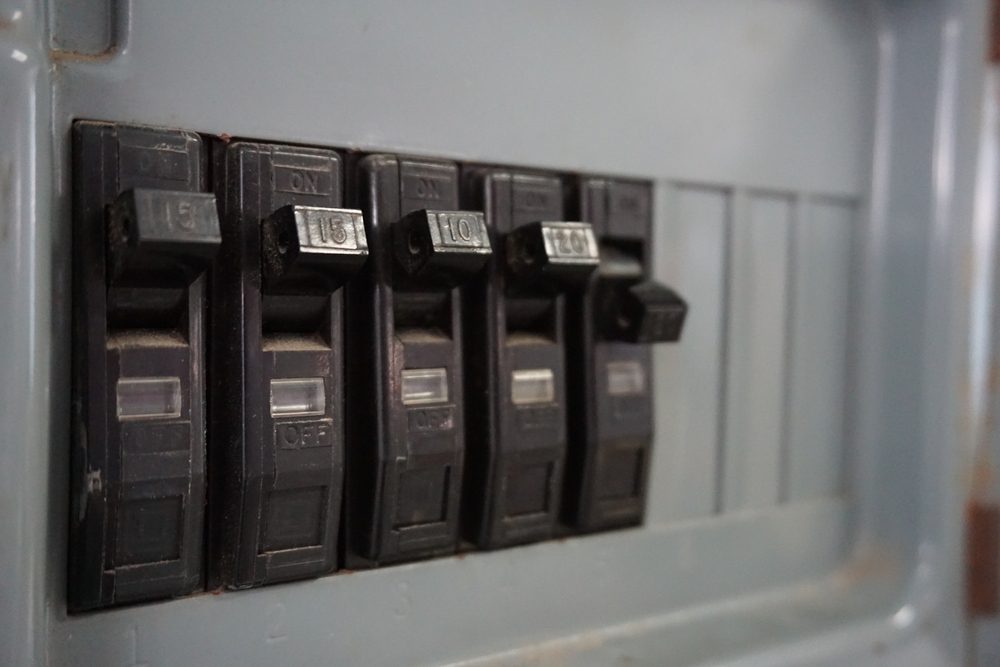
Flickering lights can be a symptom of underlying electrical issues that, if ignored, could lead to more serious problems. While it might be as simple as a loose bulb or a fluctuating power grid, the cause can sometimes be more concerning. For instance, loose wiring—a relatively common culprit—can often be an easy fix.
These electrical quirks could lead to some real trouble. What starts as a minor annoyance might become a dangerous situation. We are talking about electrical fires or even electric shocks. This is why it’s important to take action. If the lights are flickering in your house, this is a sign of a serious safety issue.
Curious to know more? Explore our guide and get some insights on why your lights are flickering and how to sort out the issue effectively.
Reasons Why Your Lights Flicker
Here’s the reason why your lights are flickering:
1. Loose Bulb
One of the simplest reasons for a flickering light is a loose bulb. When the connection between the bulb and the socket is not secure, it can lead to intermittent contact, causing the light to flicker. This is particularly common with bulbs that are screwed in. The solution can be as straightforward as turning off the light switch and tightening the bulb.
2. Power Fluctuations
Different types of bulbs may flicker for various reasons. LED bulbs, for instance, are sensitive to fluctuations in power supply, which can cause them to flicker. Older fluorescent bulbs often flicker as they power up or when they are nearing the end of their lifespan. Upgrading to high-quality, modern bulbs can sometimes resolve flickering issues.
3. Dimmer Switch Compatibility Issues
If your lights are flickering in a fixture connected to a dimmer switch, the issue could be the dimmer itself. Not all light bulbs are compatible with all dimmer switches. Many LED bulbs require a specific type of dimmer to operate correctly. Using the wrong type of dimmer can lead to flickering, so it’s crucial to ensure compatibility.
Read More: What Are Line and Load Wires Used for in Houses?
4. Loose Connection
A loose electrical connection in your home’s wiring can also cause lights to flicker. This is a more serious issue, as it could indicate a potential for electrical fires or shock. Loose connections can occur anywhere along the circuit, from the electrical panel to the switch and the socket. Identifying and repairing loose connections requires a professional electrician to work on your home’s electrical system.
Before diagnosing the issue, it’s essential to observe the flickering pattern. Is it happening often or was it just once? How much are the lights flickering? Is it one light or all of them in the house? These observations can help pinpoint the cause, whether an isolated issue with a single light or a more widespread problem affecting the entire electrical system.

5. Overloaded Circuit
An overloaded circuit is a common cause of lights flickering. When too many appliances or light fixtures are running simultaneously on the same circuit, it can lead to temporary dips in power, causing the lights to flicker. This often occurs in older homes where the electrical system isn’t equipped to handle modern electrical demands.
6. Utility Service Issues
Problems with the utility service, including grid fluctuations or issues with the utility equipment, can cause widespread flickering lights. These issues are typically outside a homeowner’s control but should be reported to the utility provider for investigation and resolution.
Read More: Top Reasons Your Electrical Outlet is Broken but the Circuit Breaker is Not Tripped
7. Old Wires
Old or loose wires can also lead to lights flickering. Over time, wiring can degrade or become loose, leading to inconsistent power supply and flickering. This issue causes flickering lights and can also be a fire hazard, requiring immediate attention.
8. Arcing
Arcing occurs when there is a loose connection, and electricity jumps over the gap, creating a brief flash of light. This phenomenon can cause flickering and is a serious safety concern as it can lead to electrical fires.
9. Main Connection Issues
Finally, problems with the primary connection of your house’s electrical system can cause flickering. This can include issues at the meter box or main service cable connections. Problems in the electrical system at this point are often complex and should be addressed by a qualified electrician.

Lighting Repair and Installation Services
If the lights are flickering in your kitchen or bedroom, contact our professionals at (703) 543-9649 to receive assistance. Our team of expert electricians in Ashburn, VA will perform an inspection of your light fixtures and wiring to diagnose the issue.
It’s important to remember that not every case of flickering lights is a cause for alarm. However, consistently flickering should not be ignored, as they can indicate a more serious electrical problem. While some issues, like a loose bulb, are easy to fix, others require professional attention.
Our skilled electricians offer dependable lighting installation and repair services for homeowners in your local area. Calling in our professionals can help diagnose and solve the issue safely, reducing the risk of electric shock or burns.
Delaying repairs can exacerbate the issue and create complications with your insurance coverage. Many insurance companies might not cover damages caused by electrical problems that worsen over time, especially if they result from do-it-yourself (DIY) attempts at fixing the problem. To ensure safety and compliance, consider booking an appointment online with us to thoroughly check your electrical system.

